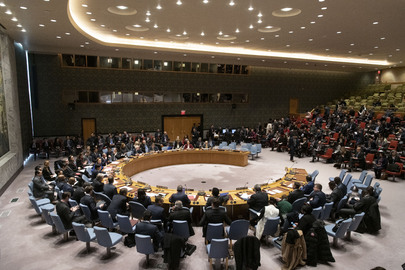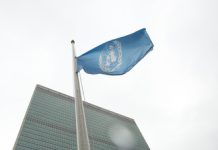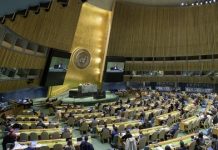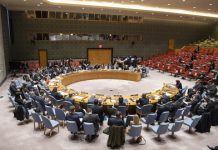Methane is a powerful greenhouse gas with 80 times the warming potential of carbon dioxide over a 20-year period.
Cutting emissions would deliver rapid, tangible climate benefits, with the UN Environment Programme (UNEP) reporting that cutting human-caused emissions by around half is one of the most cost-effective ways to slow climate change in the near term.
In 2022 UNEP launched a satellite tracking system to detect unintentional methane leaks from the oil and gas sectors.
‘Bending the curve’ on emissions
Known as MARS (the Methane Alert and Response System) it provides free, accurate information about emissions – which are odourless, invisible and therefore hard to spot – so that companies and national authorities can act on them.
According to the latest edition of UNEP’s International Methane Observatory publication released on Wednesday, the number of alerts leading to action rose from one per cent to 12 per cent in the past year.
The agency says more action is needed to achieve the goal of curbing a third of methane emissions by 2030.
“Reducing methane emissions can quickly bend the curve on global warming, buying more time for long-term decarbonisation efforts,” says Inger Andersen, head of UNEP: “But the important progress on reporting must translate into cuts to emissions.”
A steely response
Ms. Anderson urged all companies in the sector to join the Oil and Gas Methane Partnership 2.0, the world’s global standard for methane emissions measurement and mitigation in the oil and gas sector, which is foundational for regulating the world’s largest oil and gas buying market – the European Union.
The MARS system is now being expanded to cover methane emissions from coal mines and waste sites – where measurement has been scarce up to now – and UNEP is stepping up detection of emissions from the steel industry, which still mostly relies on coal.
In its report, the UN agency notes that low-cost solutions to methane emissions from coal used in steelmaking are available but remain largely overlooked in efforts to decarbonise the industry.
Source of original article: United Nations (news.un.org). Photo credit: UN. The content of this article does not necessarily reflect the views or opinion of Global Diaspora News (www.globaldiasporanews.com).
To submit your press release: (https://www.globaldiasporanews.com/pr).
To advertise on Global Diaspora News: (www.globaldiasporanews.com/ads).
Sign up to Global Diaspora News newsletter (https://www.globaldiasporanews.com/newsletter/) to start receiving updates and opportunities directly in your email inbox for free.





























